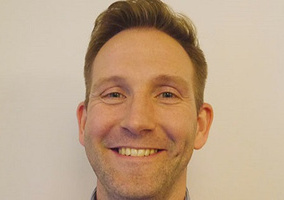Leading a charity is an increasingly complex effort. When I joined the sector in the early 1980s, charities operated in a simpler environment. Today, charities are subject to improved safeguarding regulations and must demonstrate they are a going concern. They are expected to be run in a businesslike way whilst demonstrating measurable community impact.
As running charities has become more commercially oriented, the makeup of boards has changed in response. Today, a typical charity board will include a range of public and business sector leaders who bring with them a wealth of experience in their fields. However, this trend towards commercial experience has brought with it a set of behavioural changes that now risk limiting the effectiveness of the charities they oversee.
Finding the right balance
Charity boards do not have an easy job. While the chief executive is responsible for running the charity, it is the board who are legally tasked with overseeing its work, ensuring the charity is administered effectively, can account for its activities and report its outcomes accurately to the public.
The challenge for charities today is finding a board that has the right balance of knowledge and experience to meet all of these challenges. This responsibility falls on the chair, who has to attract and retain people with lived experience of the mission, extensive practitioner and business management experience, commit themselves to significant legal and professional liability, all without paying them a penny. Considering the public scandals around charity mismanagement over the last few decades, it is a wonder that anyone joins a charity board at all.
To compete for funds and public attention charities need digital science, omni-marketing channels, sophisticated information management systems, service design principles, understand supplier contract law and sustainability and consumer management tools. Board members are needed who can bring market foresight and a network of contacts to support the CEO.
Harder to measure social impact
Board members need to bring a drive to support the leadership of transformation. Commercial board members look for hard indicators and measures of performance that do not translate simply to social impact. Whether it be improving self-confidence, trust and life opportunities, increasing a sense of safety and security, or reducing the deterioration of older people, these are not outcomes that lend themselves to the kind of hard numerical measurements found in the commercial businesses.
From supporting refugees to reaching young carers of people with complex needs, the barriers charities tackle on the ground require knowledge and deep understanding to provide proper oversight. Charity boards with too much business transactional and risk orientation often seek too much control, too much certainty, or are unaware of real risks. Precious staff resources and effort are regularly wasted defining and collecting simplistic measures because of the board’s lack of experience and insight.
Need to understand beneficiaries
There are also many stark differences between the commercial and charitable sectors. Charities operate on a small budget while engaging in a difficult mission. Charities cannot offer high rates of pay or invest in the latest business tools. They must follow their mission within the confines of what can often be incredibly limited resources. To deliver their mission effectively charitable board members therefore need to be fully engaged, well informed and willing to be creative. They must understand the people (or cause) they’re serving and not just rely on knowledge of their own sector.
There is a real and tangible benefit to the contribution of commercial executives on charitable boards, and in my own experience many have been strongly committed to the charitable mission. However, charities require a board with a diverse set of skills and a wide mix of backgrounds. The dominance of board members from too narrow professional fields limits the charity’s effectiveness.
Changing this across the sector cannot happen overnight, but the sector needs to be firmer about what it needs from its overseers and work with professional bodies to make this a reality. The professional sectors in demand need to create shadow volunteering opportunities and create career pathways which include gaining charity board experience. By achieving this, boards will be better equipped to deliver their missions and thrive.
Sue Freeth is former chief executive of LifeCare
Related articles











